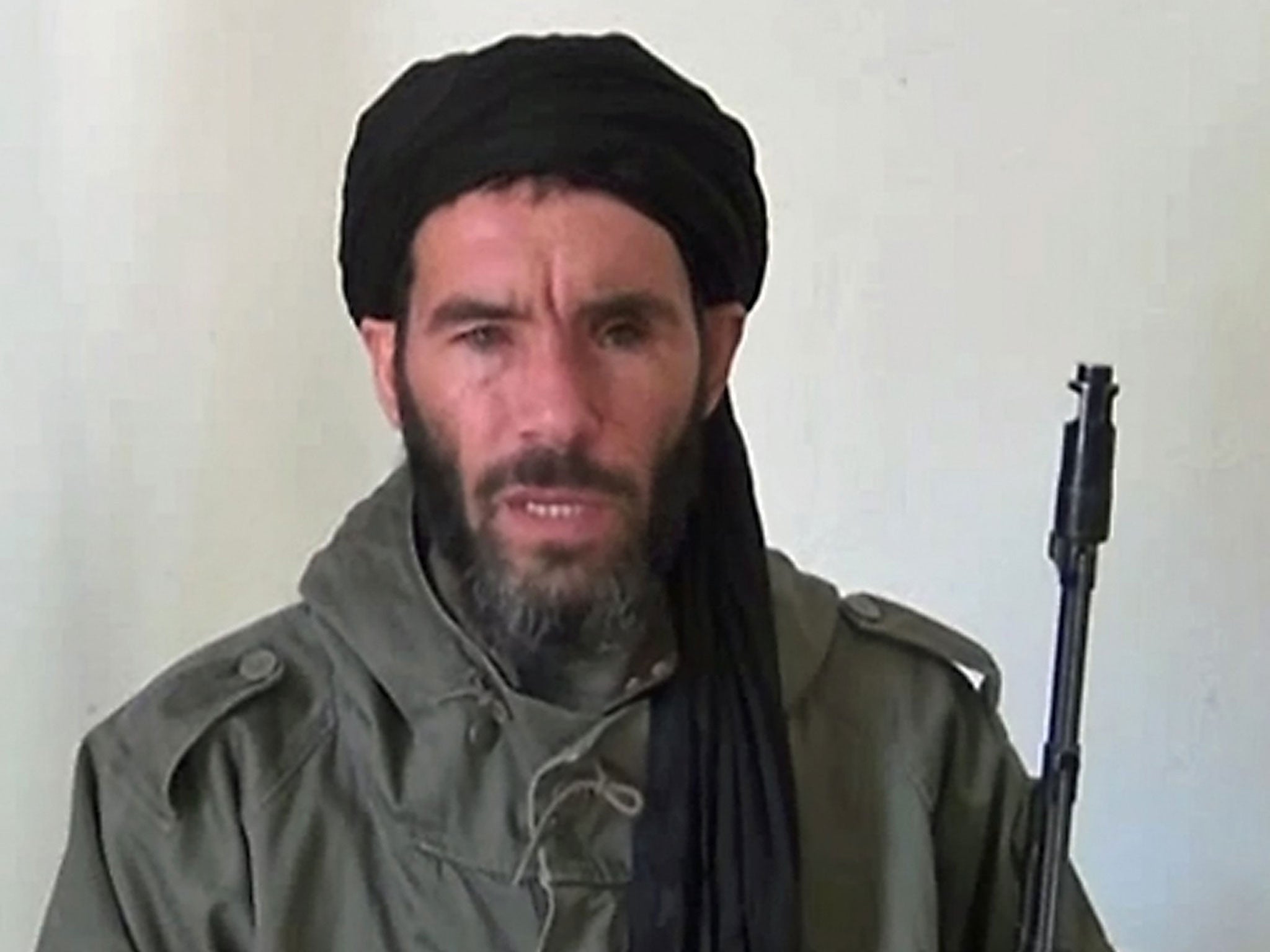
Your support helps us to tell the story
From reproductive rights to climate change to Big Tech, The Independent is on the ground when the story is developing. Whether it's investigating the financials of Elon Musk's pro-Trump PAC or producing our latest documentary, 'The A Word', which shines a light on the American women fighting for reproductive rights, we know how important it is to parse out the facts from the messaging.
At such a critical moment in US history, we need reporters on the ground. Your donation allows us to keep sending journalists to speak to both sides of the story.
The Independent is trusted by Americans across the entire political spectrum. And unlike many other quality news outlets, we choose not to lock Americans out of our reporting and analysis with paywalls. We believe quality journalism should be available to everyone, paid for by those who can afford it.
Your support makes all the difference."The Uncatchable One", "Mr Marlboro", "One-Eyed Jack": Khaled Abu al-Abbas aka Mokhtar Belmokhtar isn't short of colourful name tags. Considering the fact that this battle-hardened jihadist cum smuggling don has been the southern Sahara's public enemy number one for the past decade or more, that's hardly surprising.
Last Wednesday, before dawn, Belmokhtar refreshed this reputation in spectacular fashion when the raid he had masterminded on the Tingantourine gas works near In Amenas in eastern Algeria was launched, resulting in hostage deaths and placing acute strain on relations between Algeria and the West.
The story of his early years fighting for the mujahideen against the Russians in Afghanistan, and his subsequent rise through the ranks of Algeria's terrorist underworld, has been well documented. The question that still needs answering, however, is precisely why Belmokhtar's multinational force of mujahideen embarked on a kamikaze operation against one of the largest energy installations in North Africa.
Sahara watchers have been tracking Belmokhtar's movements with curiosity since last October when it was announced that he had been ousted from al-Qa'ida in the Islamic Maghreb (AQIM) for "fractious behaviour" by Abu Musab Abdel Wadoud, supreme leader of the jihadi organisation.
Wadoud had apparently disapproved of Belmokhtar's criminal trafficking activities for years, but whether his dismissal was due to arguments over money or to Belmokhtar's strained relations with Abou Zeid, an arch-rival in the organisation who currently controls Timbuktu, isn't entirely clear.
In any case, Belmokhtar quickly formed a new brigade called "Those Who Sign with Their Blood", which, he proclaimed, would specialise in "martyr operations" and punish France for its aggressive attitude against Belmokhtar's fellow jihadists in Azawad – ie, northern Mali.
Just how Belmokhtar's men then managed to cross the thousands of kilometres of open desert between his base in Gao and In Amenas, with up to 100 men and 20 4x4 vehicles, unnoticed by the Algerian army or secret services, is a conundrum that will keep busy the conspiracy theorists who believe that AQIM is heavily infiltrated by the Algerian secret services.
Belmokhtar's choice of target for his brigade's first "martyrdom" operation was perhaps predictable. The Tingantourine plant is part owned by Algeria's state-run energy giant Sonatrach, one of the most reviled organisations in the country, by jihadists at least. Belmokhtar was no doubt aware that this would be a seismic strike which would reinstate his reputation as the most feared jihadi emir in the Sahara.
An Algerian ex-army officer speculated in the Algerian daily El Watan that the raid at In Amenas was part of a wider strategy to internationalise the conflict in northern Mali and force Western powers to send in their troops. This is precisely what the Tuareg Islamist leader Iyad Ag Ghali did when he attacked Konna, in Mali, on 11 January, which drew France into the conflict.
It may be a while before we can be sure whether Belmokhtar took part. But, given his reputation as "the uncatchable one", we might guess that the man with more lives than a desert wildcat has lived to fight another day.
Andy Morgan is a writer specialising in Saharan affairs
Join our commenting forum
Join thought-provoking conversations, follow other Independent readers and see their replies
Comments